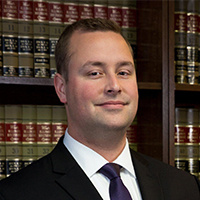Baileyville Workout Lawyers, Illinois
Sponsored Law Firm
-
 x
x

Click For More Info:
-
PMJ PLLC
100 S State St Chicago, IL 60603» view mapBankruptcy & Debt Working Relentlessly For You
Patrick is the Founder of PMJ PLLC and has more than 20 years of experience.
800-901-4721
Not enough matches for Baileyville Workout lawyer.
Below are all Baileyville Bankruptcy & Debt lawyers.
Sponsored Lawyers
1-10 of 43 matches
Accident & Injury, Divorce & Family Law, Estate, Bankruptcy & Debt, Business
Thomas was born and raised in Cherry Valley, Illinois. He attended Western Illinois University where he received his Bachelor’s in Law Enforcement and Justice Administration. Thomas went on to attend law school at Southern Illinois University School of Law where he graduated Magna Cum Laude. During law school, Thomas was on the Board of Editors for the Journal of Legal Medicine and the President of the Healthcare Transactions Team. After graduating law school, Thomas began his legal career as an Assistant State’s Attorney with the Winnebago County State’s Attorney’s Office. Thomas joined the firm in 2017. He is currently a member of the Winnebago County Bar Association and the Illinois State Bar Association.
(more)


 Patrick Jones Chicago, IL
Patrick Jones Chicago, IL Practice AreasExpertise
Practice AreasExpertise

